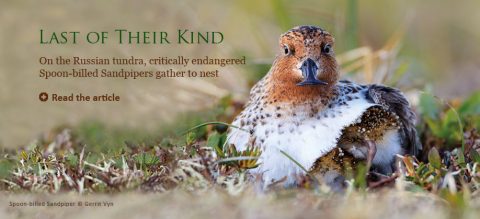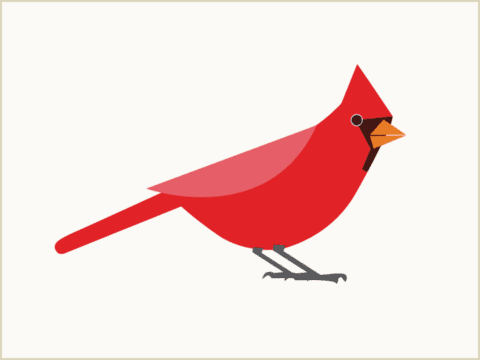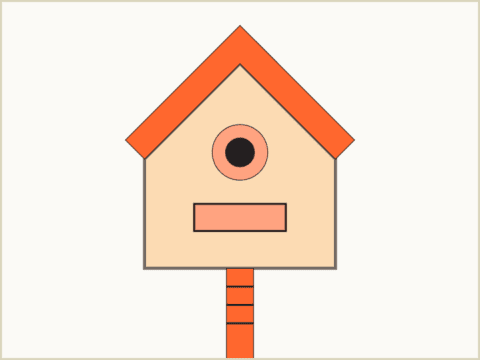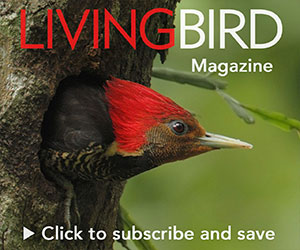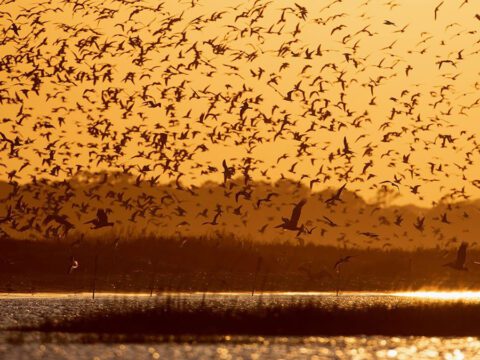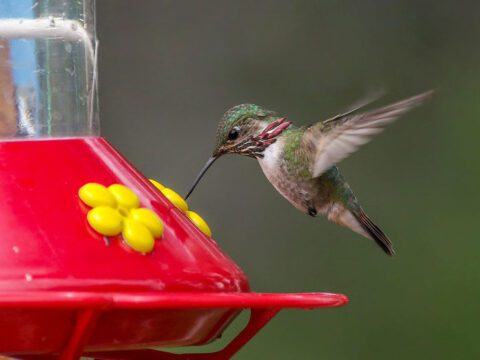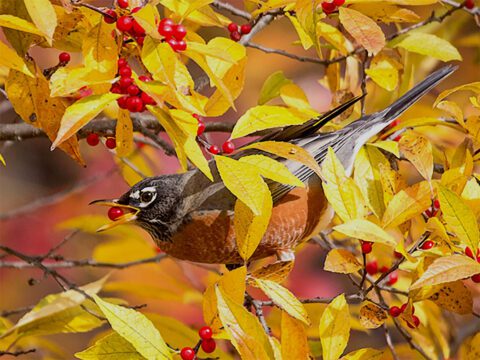View From Sapsucker Woods: Cornell Lab Looks to Its Next Century
By John W. Fitzpatrick
January 15, 2013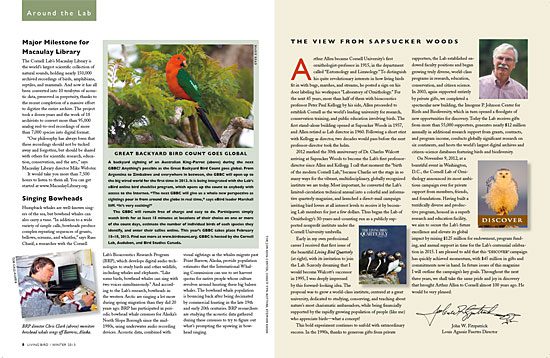
Arthur Allen became Cornell University’s first ornithologist-professor in 1915, in the department called “Entomology and Limnology.” To distinguish his quite revolutionary interests in how living birds fit in with bugs, marshes, and streams, he posted a sign on his door labeling his workspace “Laboratory of Ornithology.” For the next 45 years, more than half of them with bioacoustics professor Peter Paul Kellogg by his side, Allen proceeded to establish Cornell as the world’s leading university for research, conservation training, and public education involving birds. The first stand-alone building opened at Sapsucker Woods in 1957, and Allen retired as Lab director in 1960. Following a short stint with Kellogg as director, two decades would pass before the next professor-director took the helm.
2012 marked the 30th anniversary of Dr. Charles Walcott arriving at Sapsucker Woods to become the Lab’s first professor-director since Allen and Kellogg. I call that moment the “birth of the modern Cornell Lab,” because Charlie set the stage in so many ways for the vibrant, multidisciplinary, globally recognized institute we are today. Most important, he converted the Lab’s limited-circulation technical annual into a colorful and informative quarterly magazine, and launched a direct-mail campaign inviting bird lovers at all interest levels to receive it by becoming Lab members for just a few dollars. Thus began the Lab of Ornithology’s 30-years-and-counting run as a publicly supported nonprofit institute under the Cornell University umbrella.
Early in my own professional career I received that first issue of the beautifulLiving Bird Quarterly, with its invitation to join the Lab. Scarcely dreaming that I would become Walcott’s successor in 1995, I was deeply impressed by this forward-looking idea. The proposal was to grow a world-class institute, centered at a great university, dedicated to studying, conserving, and teaching about nature’s most charismatic ambassadors, while being financially supported by the rapidly growing population of people (like me) who appreciate birds—what a concept!
This bold experiment continues to unfold with extraordinary success. In the 1990s, thanks to generous gifts from private supporters, the Lab established endowed faculty positions and began growing truly diverse, world-class programs in research, education, conservation, and citizen science. In 2003, again supported entirely by private gifts, we completed a spectacular new building, the Imogene P. Johnson Center for Birds and Biodiversity, which in turn opened a floodgate of new opportunities for discovery. Today the Lab receives gifts from more than 55,000 supporters, generates nearly $12 million annually in additional research support from grants, contracts, and program income, conducts globally significant research on six continents, and hosts the world’s largest digital archives and citizen-science databases featuring birds and biodiversity.
On November 9, 2012, at a beautiful event in Washington, D.C., the Cornell Lab of Ornithology announced its most ambitious campaign ever for private support from members, friends, and foundations. Having built a terrifically diverse and productive program, housed in a superb research and education facility, we aim to secure the Lab’s future excellence and elevate its global impact by raising $125 million for endowment, program funding, and annual support in time for the Lab’s centennial celebration in 2015. I am pleased to add that this “DISCOVER” campaign has quickly achieved momentum, with $45 million in gifts and commitments now in hand. In future issues of this magazine I will outline the campaign’s key goals. Throughout the next three years, we shall take the same pride and joy in discovery that brought Arthur Allen to Cornell almost 100 years ago. He would be very pleased.
John W. Fitzpatrick
Louis Agassiz Fuertes Director

All About Birds
is a free resource
Available for everyone,
funded by donors like you
American Kestrel by Blair Dudeck / Macaulay Library
